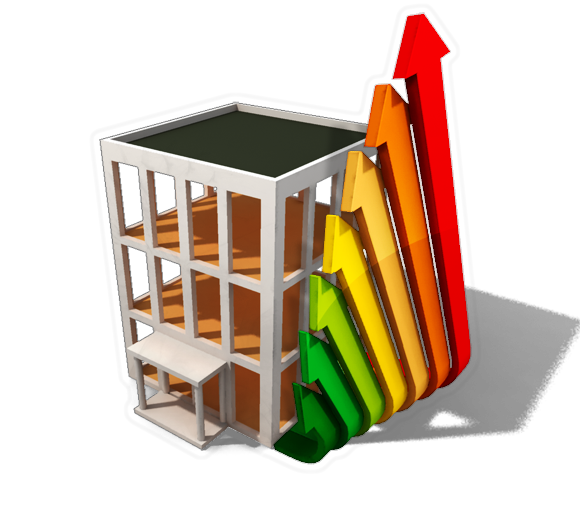Sellers have to provide an EPC to possible buyers. They can be a very helpful guide to the energy efficiency of a property. However, they shouldn’t be taken as a bible.
First things first, what is an EPC?
An EPC is a standardized document that ranks properties in terms of energy efficiency and which home sellers have to render to the possible buyers. The EPCs include information regarding the property’s energy; what they use, their costs along with their recommendations regarding to make the whole thing more efficient and cheap.
You may not think a lot of the Energy Performance Certification; less than 10 percent of the tenants say that they are considered energy efficient of their existing home as a very vital factor for deciding to live there. Having an up to date EPC is crucial, and there are many situation that might prove to be difficult for a landlord if you do not have one. These include not being able to regain possessions of a property or being able to let it out. More importantly, a landlord might already be breaking the law if they have not provided a valid certificate when the property is marketed.
Why Do You Need An EPC?
From 2020, If a property Landlord might not be able to let their property unless and until it is rated E or higher;
By the year 2018, renewed and new tenancies will have to meet an EPC rating of E or above, with all the tenancies falling in line in April 2020. The failure to ensure that the property is up to this standard will mean that you are breaching the law, and resultantly, you might face a fine of up to 4000 pounds. You will not be able to rent out the property unless and until the improvements have all been made in order to ensure that they meet the energy efficiency requirements.
You Have To Give One To Your Tenants During The Start Of The Tenancy
All landlords should give their tenants a valid EPC amongst other things during the start of the new tenancies. If an EPC hasn’t been supplied, you might not be able to serve a valid Section 21 notice, effectively which will prevent you from gaining possession of the property till the EPC has been provided to the tenant. However, this is only true and applied if the EPC was needed when the property was marketed.
EPCs Are Needed When You Market Your Property
All adverts for either selling or renting the property must clearly indicate the energy rating of the building. This includes all the ads places in the magazines and newspapers, any written materials produced by the landlords and on the internet. You must, therefore, render an EPC free of charge to the prospective tenant as your earliest. There is also a penalty set for those who do not provide their EPC. The penalty is mostly 200 pounds for failing to render an EPC. You will have to be warned, but there are a lot of exceptions as if there was inadequate time for the prospective landlord to be fairly expected to have obtained an EPC prior to letting the building or
if the landlord has been provided a valid EPC to the tenant as quickly as reasonably practicable after letting the property.
Circumstances In Which You Might Not Need An EPC
EPCs are not required on construction, rent or sell for the following:
Places of worship
On rent or sell for buildings due to the fact of being demolished
Industrial sites, non-residential agricultural buildings with a very low energy demand.
What Will Happen If You Do Not Have An EPC?
There are many drawbacks of not having an EPC. The penalty for failing to obtain an energy performance certification available to any prospective buyer or tenant when letting non-dwellings is fixed or when selling, is at 12.5 percent of the rateable value f the building, subjected to a minimum penalty of 500 pounds and a maximum of up to 5000 pounds. There is also a default penalty of up to 750 pounds where the formula is not applicable. However, you will still require an EPC.
Basically, the reason why you need an EPC is that your property ‘s EPC needs to be available to all the possible buyers as soon as you start to market your property or rent it or sell it. You must also get an approved DEA, the domestic energy assessor, in order to produce the EPC.
If you are implementing any of the energy efficiency recommendations outlined in the EPC, you might wish to get a fresh EPC done in order to include these in the improvements.
EPCs are known by their rating scale along with the relative financial implications of the scale when it comes to selling the house. It also includes a lot of other information that is designed to help in making the house greener. So the information basically includes fuel costs, carbon dioxide emissions. It also includes estimates of the energy that your property potentially uses and who to contact for the complaints.
Nearly all houses need an EPC, but that technical definition is that the building requires an EPC if it uses air conditioning or heating. By definition then, it uses energy to condition an indoor climate.
You receive an EPC when you are thinking of buying a new home, or you should be provided with an EPC free of cost. This applies to existing stocks and new homes as well as the existing stock. If you are considering about renting a property, you should try to get an EPC from the landlord free of cost. That said, you will not need an EPC until and unless you are thinking about just renting a room with shared facilities instead of just renting the entire property itself.
The EPC rates a building performance in the following terms:
- The energy uses per square meter of the floor area
- Environmental impact which is based on CO2 emissions
- The energy efficiency that are based on the fuel costs.

Write a Comment